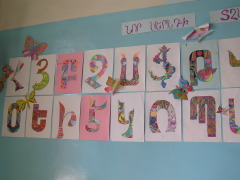 Tuesday, July 2, 2013 at 2:27AM
Tuesday, July 2, 2013 at 2:27AM Testing, testing, 1 - 2 - 3: Change is coming (to the Bac in France)
And while the US empowers test-makers to shape classroom teaching, change is coming. However, right now, it's coming somewhere else.
National high-stakes exams (funnel exams) are the strongest barriers to transformation that we have created in our education systems. But we will one day be free of these notorious, spirit-crushing exercises in memorization, calculation and re-presentation. We will build systems that respond—however slowly—to our pressing need to build and assess skills needed for the 21st-century.
It's happening.
In France, not close to the leading edge of education, the end-of-high-school Bac is wheezing and showing its age:
...for all the reverence, nostalgia or stress that it still inspires, its utility is growing ever less clear, according to French officials, students, parents, teachers and employers — most everyone, really.
“Each year more ridiculous, the comedy of the bac has returned,” Luc Ferry, the philosopher who once served as education minister and oversaw the test, wrote this month in the newspaper Le Figaro.
France once liked to think of its educational system as a model for the world, but studies show academic performance here to be unexceptional and on the decline, and officials have in recent years begun to fret. Increasingly, the bac is viewed as the flagship of a flawed system, a symbol not so much of French excellence but of what is wrong with education here.
Check it out. The NY Times article is chock-full of casual Bac-dissing:
"It’s more a rite of passage than an exam,” said Ms. Ripoll, 18, dragging lightly on a morning cigarette. "That’s why it would be a shame to get rid of it. Everybody’s been through it. It’s traumatized everybody."
As the article (finally, finally) states, the purpose of such exams (and they're everywhere!) is in part to allocate scarce resources (university placement). But these exams do a lousy job of it. If you believe that university placement (it's scarce, OK?) should be based on potential contribution, well, testing as conducted is a terrible predictor, and one that completely fails to account for economic inequality and cultural difference.
I've heard, elsewhere (São Paulo) that funnel exams are necessary to ensure equity. But we don't provide the preconditions for equitable assessment in our societies or our schools. AND as France, the US and Korea (!) have shown, the exams can be gamed, they elicit cheating.


